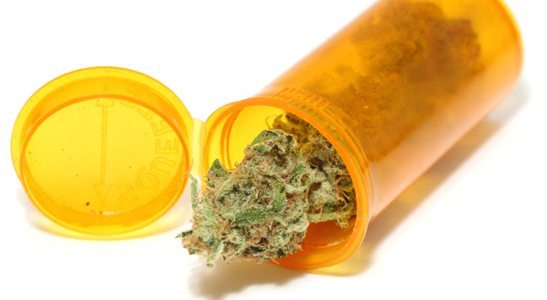It seems as if the ball is finally rolling on the law Arizona voters passed two years ago that legalized medical marijuana.
Last week the Maricopa County Superior Court ruled the law constitutional, and this week the state’s first dispensaries opened in Glendale and Tucson.
The implementation of Arizona’s medical marijuana system has presented the Department of Health Services with several challenges, the biggest of which being that they were only given 120 days to set it up, DHS director Will Humble said.
Eighteen states and the District of Columbia have passed medical marijuana laws so far, which gave the DHS plenty of examples for their system.
“While our regulations didn’t come from any particular place, we did borrow ideas from some states,” Humble said. “But most of the ideas came from brainstorming sessions that we had internally.”
The Arizona Medical Marijuana Act, the voter-passed initiative that came into law in Nov. 2010, was ruled constitutional by Judge Michael Gordon. This ruling came in spite of County Attorney Bill Montgomery’s argument that marijuana is still a Schedule I drug under the federal Controlled Substances Act.
The AMMA has allowed over 30,000 Arizona residents to become cardholders so far, a number that is only expected to grow.
The recent developments regarding medical marijuana in the state, as well as the ballot measures passed in Colorado and Washington this past election, have left many thinking that legalization is possible here as well.
“There’s not a doubt in my mind that it will be legal in no time,” said Kathy Lane Inman, Executive Director of NORML in Arizona.
She said her next goal as head of the organization is to campaign to remove the felony charge that is currently in place for possession of any amount of marijuana.
“At the very least we can do that,” Inman said. “I believe in my heart that we can do that, and I’ve talked to attorneys and they feel the same.”
Humble believes legalization here is dependent on how things go in Colorado and Washington.
“If [they] end up having big community problems as a result of legalization then I think it’s probably unlikely that it’ll expand to Arizona,” Humble said. “But if there’s not a big upswing in community problems and this ends up being a popular thing in those two states, then it could spread to other states.”
Rick, a patient and employee at a delivery service for cardholders, who declined to give his last name, believes it’s only a matter of time.
“It’s going to take time for more people to get their medical cards,” Rick said. “People that are sick will start switching to [marijuana] treatments and their families will start seeing how it works.”
Although legalization may still be a long way off, the benefits of medical marijuana have already become apparent to many.
Inman, who is not a cardholder herself and who once doubted that marijuana has medicinal properties, said she has seen it improve the lives of several patients already.
“I met so many patients, real patients that were actually seeing results, not just cancer patients who felt like eating, it was people who had asthma, people with glaucoma who were able to see better,” Inman said.
Rick has also seen firsthand the ways that marijuana has benefited patients.
“I have this patient who’s about 70 years old, he has muscular dystrophy and his hand was paralyzed in a fist for over a year. He just got movement in his hand back,” he said. “I have other patients, this lady who has breast cancer and she goes to chemo, the medical marijuana treats a lot of the symptoms that she deals with with the chemo.”
Rick said he uses medical marijuana himself to treat back pain and recurring bells palsy. After playing sports in high school and then having an accident later on he hurt his back. After that, stress caused bell’s palsy, a paralysis that affected the left side of his face.
“Once I started using medical marijuana my paralysis went away. When I get stressed the paralysis will come back,” Rick said.
He said he was prescribed anti-depressants to combat the stress, with no results. He was also prescribed Vicodin for his back pain, which he disliked taking.
“It was too strong…it made me sick,” he said.
Inman, who also works with Phoenix March, an organization of women advocating for marijuana as a safe alternative to drugs and alcohol, agrees that prescription drugs can be dangerous.
“A lot of people have a lot of pain, a lot of people use prescription drugs for pain; it’s better that they use something natural. [Marijuana] is a medicine that’s been used for thousands of years,” Inman said.
Although marijuana has already helped thousands of people in Arizona alone, there are still plenty who don’t believe it has any medicinal value.
Laurie Roberts, a columnist for the Arizona Republic, frequently scoffs at cardholders in her columns, and has referred to medical marijuana as “a charade.”
Roberts is part of a shrinking mindset, however, and Rick believes it’s easy to see the truth about marijuana.
“If you talk to people who are patients and you hear their stories you’ll see that there really is a lot of good in this medicine,” he said. “It’s natural, it comes from the Earth. People put a lot of meds in their bodies every day and they don’t even know what’s in them.”
The legalization of medical marijuana has had legal benefits as well. According to the annual crime reports released by the Department of Public Safety, there were 16, 416 arrests for possession of marijuana throughout the state in 2011, which made up 5.59% of total arrests.
This is a number that is down 19% since 2009, when 20,378 people were arrested for possession.
While the drop may make some think that criminals make up a large portion of cardholders, the DHS believe they have made every effort possible to keep recreational users from taking advantage of the system.
“I think we’ve succeeded to the extent that we can, given the language that was in the voter-approved law. Our hands were tied in some respects,” Humble said. “I think we’ve done the best that we can given the statutes that we had to work with.”
The law that was passed does not allow for money raised to be used for anything but implementing the program, Humble said. Right now money made from fees goes towards paying lawyers to defend the DHS against lawsuits, as well as paying for contracts with the University of Arizona’s College of Public Health and the Arizona Board of Pharmacy.
The program’s slow start is very much due to the fact that the law didn’t account for the financial aspect of it, said Laura Oxley, public information officer for the DHS.
“There was no funding attached to the voter initiative and we needed to get started building an IT system,” Oxley said. “We borrowed money from other programs and then once we began issuing medical marijuana registry cards, we paid it back.”
Colorado’s ballot measure legalizing marijuana stipulated that the first $40 million dollars raised from taxing the plant be given to fund public schools. The ability to tax marijuana is something that makes many think it should be legalized and regulated by the government.
“They make a lot of money taxing alcohol and they make a lot of money taxing cigarettes,” Inman said. “The government could make a ton of money [taxing marijuana,] and that would take all the power out of the cartel’s hands. We could save lives below the border, too.”
Rick also thinks that legalization would be beneficial to the economy.
“I think the possibility of it being legalized in Arizona is going to be more about how it would stimulate the economy,” Rick said. “It won’t happen until the voters are ready for it.”




